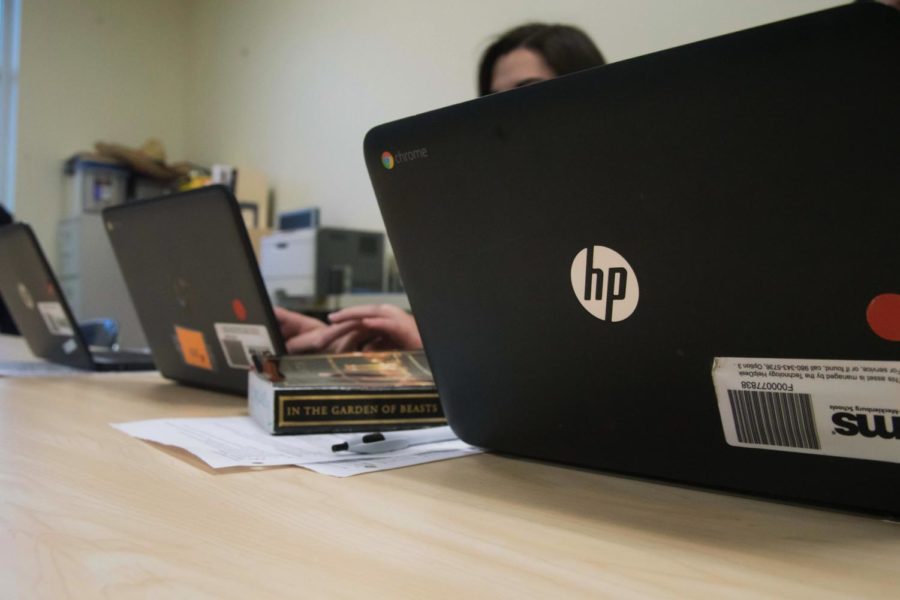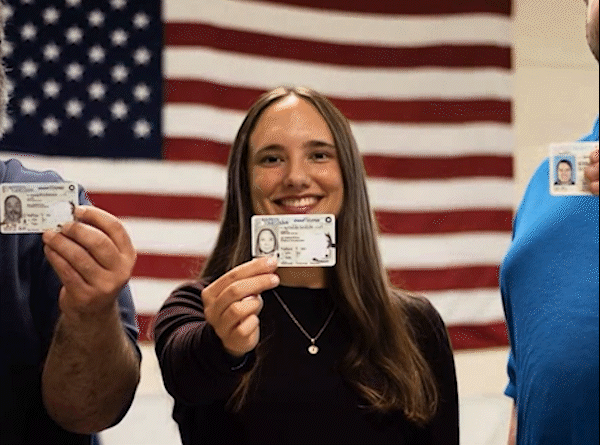Chromebook roll-out beneficial for students
In September, CMS implemented a one-to-one Chromebook policy to help diminish the digital divide.
Photo by Eli Hausman
Students use their school provided Chromebooks to complete their work in class.
At a school where 61 percent of students are of a low socioeconomic status, East Meck’s one-to-one Chromebook distribution is helping to close the digital divide.
The Chromebook roll-out is funded by Charlotte-Mecklenburg Schools (CMS) and works with Sprint’s 1 Million Project. The 1 Million Project’s mission is to help one million high school students without reliable home internet access reach their fullest potential by giving them mobile devices and free high-speed internet access.
On Sept. 18, more than 2,000 Chromebooks were distributed to East students in just two hours. As of Nov. 15, there are 2,085 students at East, and every single one has been allocated a Chromebook for the duration of the school year. Students bring these to and from school daily and use them in classes and at home for various assignments.
East is among several other CMS high schools that have had Chromebook roll-outs including Butler, Independence, Garinger, West Charlotte, Hough, Hopewell and Phillip O. Berry.
“Before, in my opinion, you would have the haves and the have nots. If your family could afford for you to have computers at home, then you would be able to be a little bit more academically successful,” Instructional Technical Coordinator Dr. Susan Austin said. “Whereas if [you] didn’t have a device for home, then [you] would not be able to do [your] work and stay caught up with all of the academics.”
The distribution of Chromebooks helps many students, but others view it as a burden and one more thing to carry in their backpacks.
While Chromebooks also add extra weight to my backpack, they are useful at home when my iPad is dead and I am too lazy to get up and go get my laptop.
Aside from my trivial experiences with the Chromebooks, it’s important to realize that Chromebooks help other students who are not as fortunate to have as many resources available at home. Allowing all students to have a more equitable access to technology helps to level the educational playing field for all.
Since the roll-out, I have noticed a few conflicts within school.
At East, students are required to follow the rules set forth by the school, but some are not enforced in every classroom. In this case, students still bring their personal devices to school, despite school policy forbidding them to do so. I think this policy needs to be more strictly enforced because the message that students can defy the rules is conveyed when they do not comply. And more than that, it contradicts the purpose of creating a level playing field for students in terms of technology.
Another issue I have noticed is how the Chromebooks get damaged. Since the roll-out, more than 50 Chromebooks have been damaged and sent out for repairs. This is problematic because CMS funds will have to be allocated to fix the Chromebooks, funds of which could be used for other things.
Students also often forget their assigned Chromebooks at home or a family member’s house. Austin estimates that daily, about five students go to the Media Center in hopes of getting a loaner Chromebook that they can use for the day because they forget their own. There are 10 loaners available daily.
I personally prefer having Chromebook carts in rooms, but the problem with that is sometimes not having enough Chromebooks for larger classes. With classroom Chromebook carts, I don’t have to worry about forgetting my charger or device at home.
Nevertheless, the roll-out has been effective and has served its purpose in providing students with resources.
Chromebooks have created a “level playing field” that reduces socioeconomic disparities in resources. Through the roll-out, East is making strides to help all of its student population adjust to the digital age.
Your donation will support the student journalists of East Mecklenburg High School. Your contribution will allow us to purchase equipment and cover our annual website hosting costs.








